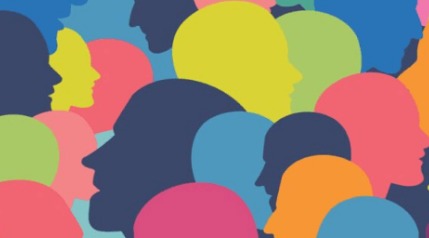Embracing Neurodiversity: A Paradigm Shift in Mental Health Awareness
In recent years, society has begun to recognize and appreciate the importance of mental health like never before. Amidst this shifting perspective, a new and vital conversation has emerged - one that centers around neurodiversity. Understanding and embracing neurodiversity is becoming a crucial aspect of the mental health discourse, fostering empathy, inclusivity, and acceptance for individuals with diverse cognitive abilities. In this article, we will explore the significance of neurodiversity, its impact on mental health, and how promoting it can lead us towards a more compassionate and understanding world.

The Essence of Neurodiversity
Neurodiversity is a concept that recognizes the natural variation in human neurological characteristics. It acknowledges that individuals have different ways of processing information, communicating, and experiencing the world. Neurodiversity encompasses conditions such as autism, ADHD (Attention Deficit Hyperactivity Disorder), dyslexia, dyspraxia, and more. Instead of viewing these conditions as disorders, neurodiversity highlights them as inherent variations in human cognition and behavior.
Breaking the Stigma
Historically, many neurodivergent individuals have faced stigmatization and marginalization due to their differences. However, the neurodiversity movement seeks to dismantle these prejudices by emphasizing that diversity in thought and perception should be embraced, not pathologized. This shift in perspective allows us to challenge conventional norms and stereotypes surrounding mental health, fostering a more accepting and compassionate society.
Strengths of Neurodivergent Individuals
While the neurodiversity movement primarily focuses on combating stigma, it also highlights the unique strengths and talents that neurodivergent individuals often possess. For instance, many people on the autism spectrum exhibit exceptional attention to detail, creativity, and pattern recognition. Similarly, individuals with ADHD might display hyperfocus and unconventional problem-solving skills. By recognizing and nurturing these strengths, we can tap into the potential of neurodivergent individuals, enabling them to make significant contributions to various fields.
Inclusive Education and Workplace
Embracing neurodiversity also necessitates a transformation in educational and professional settings. By adopting inclusive practices, such as providing varied learning strategies and flexible work environments, we can empower neurodivergent individuals to thrive. Educators and employers can play a pivotal role by accommodating diverse needs, fostering a more supportive environment, and promoting greater collaboration among all individuals.
Promoting Mental Health Advocacy
As the neurodiversity movement gains momentum, it encourages broader mental health advocacy. By understanding that mental health isn't a one-size-fits-all concept, we can create more effective and tailored support systems. Advocates can push for better access to mental health services that cater to diverse needs, ensuring that every individual, regardless of neurotype, receives the help they require.
Building Empathy and Understanding
By embracing neurodiversity, we also cultivate empathy and understanding among the general population. When people become aware of the unique challenges faced by neurodivergent individuals, they are more likely to extend patience, support, and kindness. This fosters a society where everyone feels seen, valued, and accepted, promoting mental well-being on a collective level.
The neurodiversity movement represents a transformative shift in the mental health landscape, pushing us to acknowledge and appreciate the inherent variations in human cognition and behavior. By embracing neurodiversity, we break down barriers, challenge stigmas, and create a more compassionate and inclusive society. It is essential that we continue to promote awareness, understanding, and advocacy for the well-being of all individuals, regardless of their neurotype. Through this ongoing effort, we can build a world that cherishes and celebrates the beautiful tapestry of human neurodiversity.
